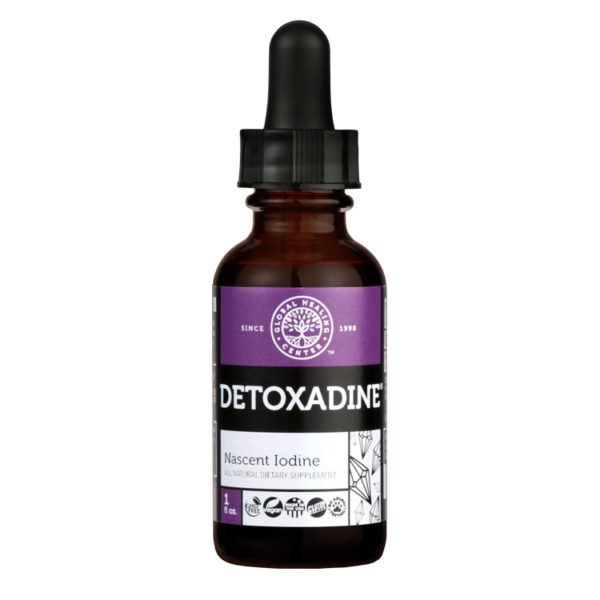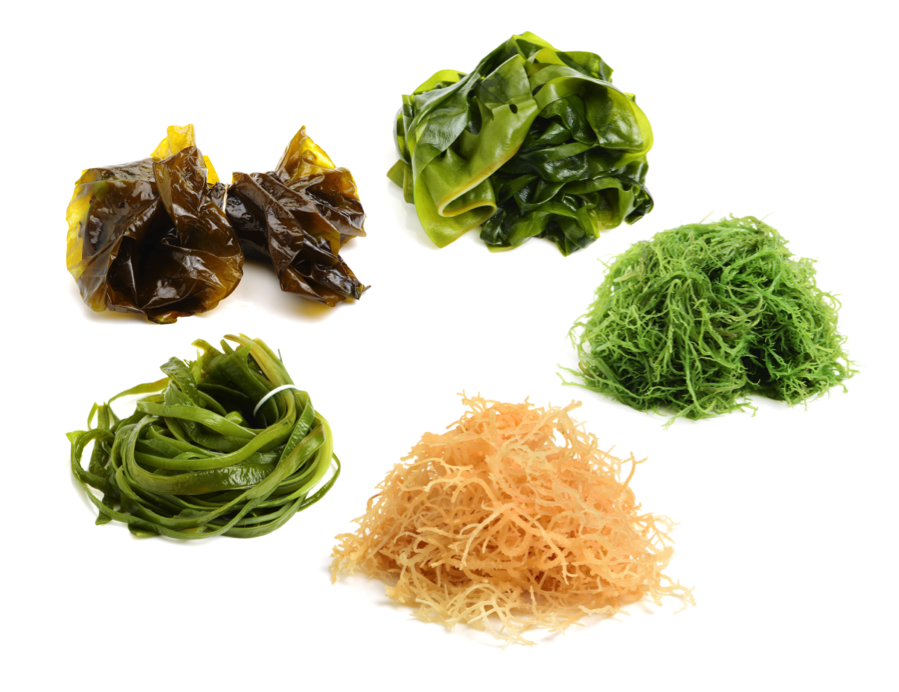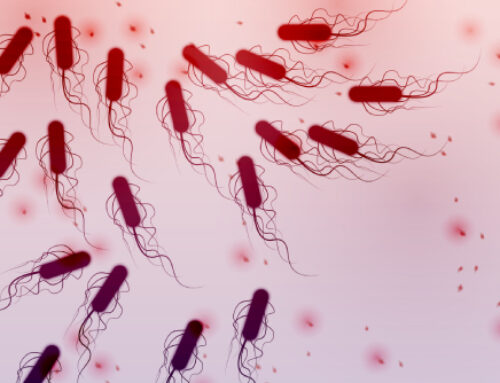There are many health benefits of iodine for thyroid health as well as a complex relationship. Research affirms that iodine, a micronutrient present in many of the foods we eat (in trace amounts), is key in helping the thyroid gland make thyroid hormones.[1] The body cannot produce iodine by itself, we are required to get it from the foods we eat or supplemental sources.[2]
As micronutrient concentrations in the soils are depleted, due to natural or toxic overload factors, the foods that used to hold iodine have been depleted of their natural levels. People have gone from eating plant and sea-based foods, to processed junk foods. All of these factors cause iodine levels to suffer.
The thyroid gland is commonly referred to as the “master gland.” One of the largest endocrine glands in the body, it is responsible for a variety of super-important processes such as the use of energy, the creation of proteins and our overall reaction to other forms of hormones.[3] The key bodily functions that the thyroid manages are impossible to implement without the creation of its main hormones, known as T3 (triiodothyronine) and T4 (thyroxine). The thyroid cannot make these two hormones without first hosting three and four iodine molecules (as well as the trace nutrient tyrosine) in both of these two main hormones.
The body does this by capturing iodine from the blood stream, and encasing it in an “iodine trap.” Without adequate iodine, these hormones cannot be produced, and when this occurs, your health may suffer drastically.
T3 and T4 are critical for metabolic functions that include metabolic rate, and the growth and smooth functionality of almost all of the body’s major organ systems. Research shows that, on a daily basis, a minimum of approximately 70 µg of iodine is needed to produce T3 and T4 hormones in the thyroid gland every day.[4] When the thyroid does not have enough iodine, it can’t produce calcitonin, a chemical related to the body’s ability to keep calcium levels in balance.
There is a delicate relationship between the thyroid gland, iodine levels, and overall health. Without iodine, energy levels plummet, hormones can become imbalanced, and physical and emotional states can suffer.
In many areas of Europe, Russia, Asia, Australia and Africa, iodine deficiency is a serious health concern. Scientists agree that iodine deficiency is still a serious global health issue and that insufficient levels of iodine in the thyroid is the most common cause of global brain damage. Estimates show that approximately 1.9 billion people are at risk for brain damage due to lack of iodine and that these numbers fall heavily on unborn fetuses and children. Globally, a lack of iodine will affect around 50 million children.[5]
Another staggering statistic from the World Health Organization estimates that around 1 billion people will suffer from some form of health issue due to a lack of iodine in the diet.[2] Estimates on Latin American countries show up to 25% the population at risk for goiters due to faulty thyroid function from a lack of dietary iodine.
This problem also exists in the West. A 1998 report from The Journal of Clinical Endocrinology and Metabolism reported that rates of iodine deficiency had dramatically increased in the United States over the past 20 years.[6] The number of U.S. residents with low intake of iodine increased fourfold. These scientists suggested that lowered rates of iodine intake could be traced to dietary changes.
Iodine and the Thyroid Gland
It is simplistic to think taking iodine will solve thyroid problems. Some thyroid imbalances stem from a genetic condition, such as autoimmune thyroid disease.
It is important to determine if the condition is based on iodine, and this can generally be determined by looking at geographic location and diet. A qualified doctor or nutritionist can detect current iodine levels through a simple urine test. A small percentage of people are iodine sensitive so iodine supplementation should begin in small amounts to prevent a thyroid flare-up.
The Health Benefits of Nascent Iodine
Learn More About Nascent Iodine
There are many instances where dietary iodine converted to iodide within the body, meaning that its full potential for supporting wellness is not reached. Nascent iodine is a supplemental form of iodine that was designed to be a more bioavailable form of iodine. Here are some benefits of iodine supplementation:
- Keeps thyroid iodine levels in balance
- Improves thyroid and endocrine system function
- May improve emotional disorders by balancing glandular systems
- Helps regulate hormone imbalances associated with weight gain
- Works as a moisturizing expectorant for the respiratory tract
- Helps protect the thyroid from absorbing radioactive isotopes
- Assists in improving brain development
- May assist in reducing or preventing goiters
- Aids in the improvement of autistic children
- Helps aid digestion, transit time and normal bowel function
- Increased energy and stamina have been reported
- Supports breast milk production and quality
- Helps balance body odors (vaginal, foot, underarm, etc.)
- Helps detoxify harmful halogens like bromides, fluoride, and chlorine
I recommend supplementing with nascent iodine on a regular basis and personally use a supplement called Detoxadine. Detoxadine® is manufactured with a unique transformative bio-elemental matrix using a revolutionary process and contains nano-colloidal nascent iodine.
If you’re looking for a supplement to detox your body, check out DETOXADINE at the AlrightStore.

References (6)
- Medline Plus. Iodine in diet. U.S. National Library of Medicine.
- Ahad F, Ganie SA. Iodine, Iodine metabolism and Iodine deficiency disorders revisited. Indian Journal of Endocrinology and Metabolism. 2010;14(1):13-17.
- Ekholm R, Björkman U. Glutathione peroxidase degrades intracellular hydrogen peroxide and thereby inhibits intracellular protein iodination in thyroid epithelium. Endocrinology. 1997 Jul;138(7):2871-8.
- Robert D. Utiger MD. Iodine nutrition – more is better. The New England Journal of Medicine. 2006 June 29. 354:2819-2821, DOI: 10.1056/NEJMe068092.
- Nyenwe EA, Dagogo-Jack S. Iodine Deficiency Disorders in the Iodine-Replete Environment. The American journal of the medical sciences. 2009;337(1):37-40. doi:10.1097/MAJ.0b013e31817baaf0.
- Burgess JR, Dwyer T, McArdle K, Tucker P, Shugg D. The changing incidence and spectrum of thyroid carcinoma in Tasmania (1978-1998) during a transition from iodine sufficiency to iodine deficiency. J Clin Endocrinol Metab. 2000 Apr;85(4):1513-7.
†Results may vary. Information and statements made are for education purposes and are not intended to replace the advice of your doctor. Global Healing Center does not dispense medical advice, prescribe, or diagnose illness. The views and nutritional advice expressed by Global Healing Center are not intended to be a substitute for conventional medical service. If you have a severe medical condition or health concern, see your physician.





Leave A Comment